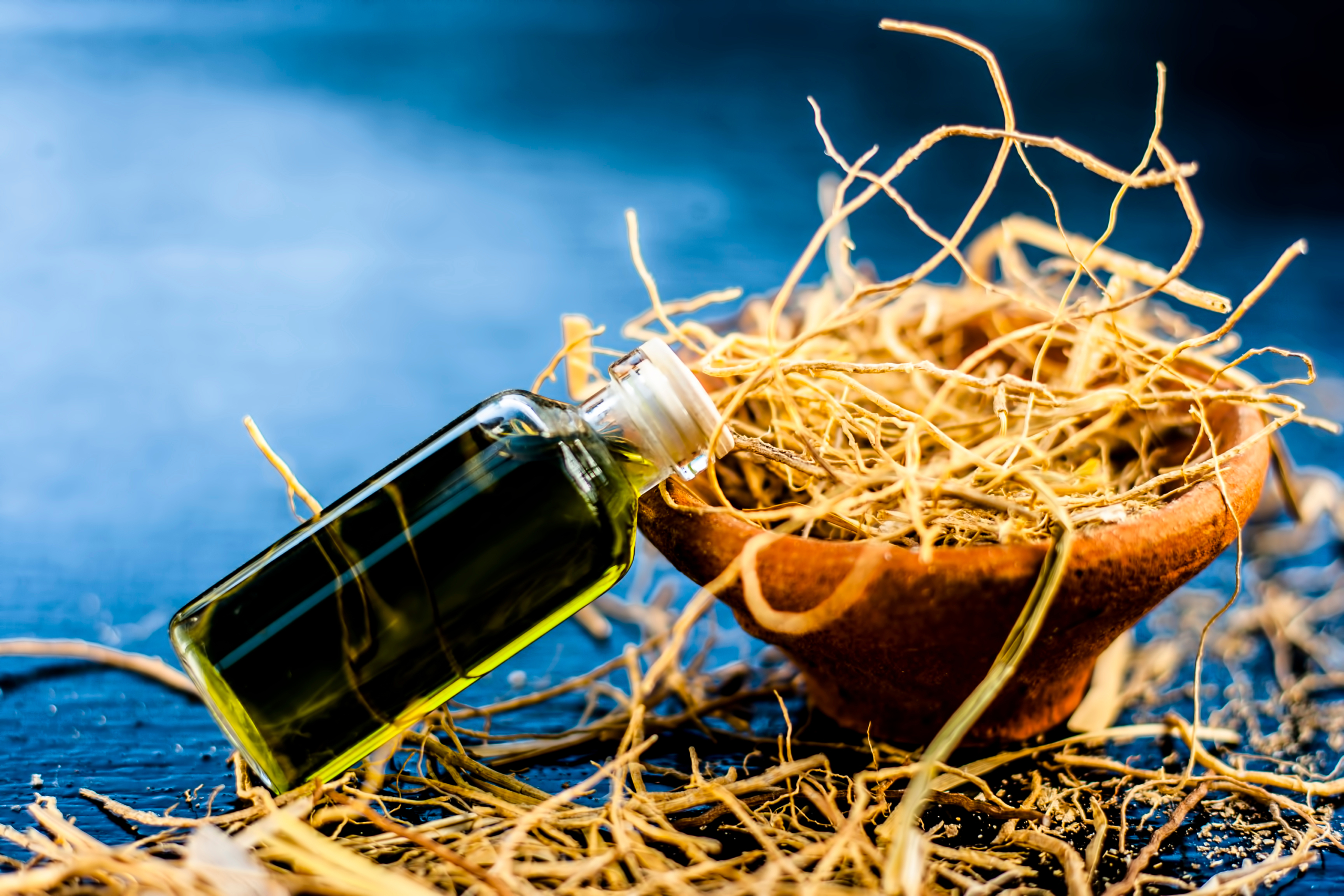Natural ingredients: Vetiver

Woody, earthy, and ambery: these are some of the key attributes of vetiver, a signature plant in perfumery that originates from India and Southeast Asia. It was originally an ingredient in Far Eastern perfumes but is now very popular in men’s fragrances and a key ingredient in intense middle-eastern perfumes.
Unearthed root is its original meaning in the Tamil language, which, together with its scientific name “zizanioides”, takes us back to its origins, “to the river” where this plant used to grow. A lingering and harmonising essential oil can be extracted from the plant, an oil that easily blends with other ingredients and greatly enhances any fragrance.
What is vetiver?
Vetiver is a perennial plant that resembles citronella, palmarosa, and lemongrass, and belongs to the grass family. It grows in humid areas in tropical or subtropical climates, and is mainly cultivated in Haiti, Java, China, India, and Brazil. There are several different species, and their varied olfactory attributes depend mainly on the region and exposure to the sun. The most highly prized vetiver comes from Haiti, from Bourbon, on Reunion Island, and from Java.
On the surface, it is quite a common plant, and simple to cultivate, but it is increasingly in demand worldwide. Despite being reasonably common, as a simple synthetic mixture composed of 2 or 3 molecules, it also has a quite unique complexity. The essential oil produced from it is viscous and amber in color. It is obtained by applying steam distillation to the root, and this process requires about 150 kilos of dried roots in order to obtain around one kilo of essential oil. The roots are washed, cut, and left to dry in the sun, thus giving it its earthy aroma, which conveys a deep state of peace.
Characteristics and uses of vetiver
The worldwide vetiver production is estimated to be around 250 tonnes per year. It grows to a height of one and a half metres and its roots can reach a depth of up to 5 metres. So, in addition to being used to extract essential oil, its highly resistant and flexible roots can remove certain pollutants from wastewater, stabilize land where there is a risk of landslides, and even slow down erosion naturally by trapping moisture in the soil.
It can also be used to flavor drinks due to its aromatic properties, which are also widely used in therapeutic treatments, such as aromatherapy, to relieve muscular pain or treat problems such as insomnia. Likewise, it is also used in natural medicine, treating everything from stings and burns, to headaches and rheumatism. This plant, from its leaves to its roots, is undoubtedly a very lucrative product overall, as it is also used in cosmetics as a natural rejuvenating agent, as well as in the manufacture of roofs and curtains, showing the benefits of each individual part of the plant.
Vetiver´s scent profile
All fragrances are made up of three olfactory notes: the top, heart and bottom notes. Vetiver is a popular bottom note, providing a long-lasting and appealing effect.
Thanks to its excellent fixation and effective harmonising, it successfully fuses all the individual elements together, ensuring that its aroma lingers for a long time. In some fragrances, vetiver may be the only note present, as its scent has come to be regarded as a perfume in its own right.
“I would describe vetiver’s scent as woody, masculine, and powerful, so much so that when this exceptional note is included in a fragrance, it brings real presence and character”, so says Beatriz Hidalgo, perfumer at Iberchem. “Nowadays, I regularly use it to create unisex perfumes, but, as it is originally from the island of Java, its scent shifts to a more burnt note, but without losing any of its intensity,”, she adds.
Ever since leading brands such as Dior, Givenchy and Chanel began to include this raw material in their perfume formulas, its presence has become more and more prestigious and sought after, and it is widely used in niche perfumes. Here are some of the signature vetiver fragrances for those who would like to connect with Mother Earth more intimately.
- L’Eau Boiseé by Guerlain. Vetiver is at the very heart of this perfume, giving it a more woody-chypre feel.
- Perris Monte Carlo Vetiver Java. A unisex woody-spicy fragrance with a heart note of Java vetiver oil and geranium.
- Sycomore by Chanel. Inspired by vetiver’s smoky scent which, when combined with notes of vanilla and cedar, gives it a slightly spicy touch.
